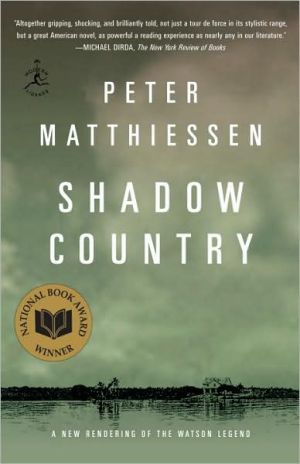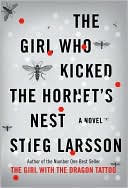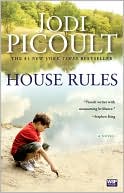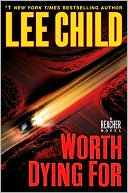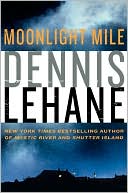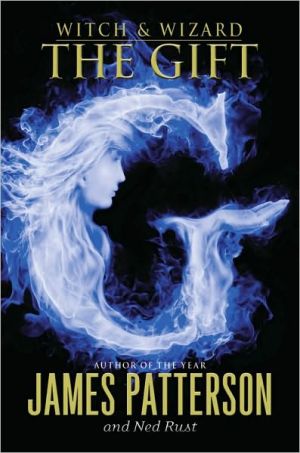Shadow Country
2008 NATIONAL BOOK AWARD WINNER\ Peter Matthiessen’s great American epic–Killing Mister Watson, Lost Man’s River, and Bone by Bone–was conceived as one vast mysterious novel, but because of its length it was originally broken up into three books. In this bold new rendering, Matthiessen has cut nearly a third of the overall text and collapsed the time frame while deepening the insights and motivations of his characters with brilliant rewriting throughout. In Shadow Country, he has marvelously...
Search in google:
2008 NATIONAL BOOK AWARD WINNERPeter Matthiessen’s great American epic–Killing Mister Watson, Lost Man’s River, and Bone by Bone–was conceived as one vast mysterious novel, but because of its length it was originally broken up into three books. In this bold new rendering, Matthiessen has cut nearly a third of the overall text and collapsed the time frame while deepening the insights and motivations of his characters with brilliant rewriting throughout. In Shadow Country, he has marvelously distilled a monumental work, realizing his original vision. Inspired by a near-mythic event of the wild Florida frontier at the turn of the twentieth century, Shadow Country reimagines the legend of the inspired Everglades sugar planter and notorious outlaw E. J. Watson, who drives himself relentlessly toward his own violent end at the hands of neighbors who mostly admired him, in a killing that obsessed his favorite son.Shadow Country traverses strange landscapes and frontier hinterlands inhabited by Americans of every provenance and color, including the black and Indian inheritors of the archaic racism that, as Watson’s wife observed, "still casts its shadow over the nation."Peter Matthiessen’s lyrical and illuminating work in the Watson narrative has been praised highly by such contemporaries as Saul Bellow, William Styron, and W. S. Merwin. Joseph Heller said "I read it in great gulps, up each night later than I wanted to be, in my hungry impatience to find out more and more." Praise for Shadow Country“Shadow Country is altogether gripping, shocking, and brilliantly told, not just a tour de force in its stylistic range, but a great American novel, as powerful a reading experience as nearly any in our literature. This magnificent, sad masterpiece about race, history, and defeated dreams can easily stand comparison with Ralph Ellison's Invisible Man and Robert Penn Warren's All the King's Men. Little wonder, too, that parts of the story of E.J. Watson call up comparisons with Dostoevsky, Conrad, and, inevitably, Faulkner. In every way, Shadow Country is a bravura performance, at once history, fiction, and myth–as well as the capstone to the career of one of the most admired and admirable writers of our time.” — The New York Review of Books“Magnificent and capacious…. I'll just say right here that the book took my sleeve and like the ancient mariner would not let go. Matthiessen has made his three-part saga into a new thing…. Finally now we have these books welded like a bell, and with Watson's song the last sound, all the elements fuse and resonate….a breathtaking saga.” — The Los Angeles Times“Gorgeously written and unfailingly compelling, Shadow Country is the exhilarating masterwork of [Matthiessen’s] career, every bit as ambitious as Moby Dick.” — National Geographic Adventure magazine“Peter Mattiessen consolidates his epic masterpiece of Florida — and crafts something even better…[He] deserves credit for decades of meticulous research and obsessive details and soaring prose that converted the Watson legend into critically acclaimed literature….Anyone wanting an explanation for what happened to Florida can now find it in a single novel, a great American novel.” — Miami Herald“Matthiessen is writing about one man's life in Shadow Country, but he is also writing about the life of the nation over the course of half a century. Watson's story is essentially the story of the American frontier, of the conquering of wild lands and people, and of what such empires cost….Even among a body of work as magnificent as Matthiessen's, this is his great book.” — St. Petersburg Times“Shadow Country is a magnum opus. Matthiessen is meticulous in creating characters, lyrical in describing landscapes, and resolute in dissecting the values and costs that accompanied the development of this nation.” —Seattle Times“Shadow Country” is an ambitious, lasting, and meaningful work of literature that will not soon fade away. It is a testament to Mr. Matthiessen’s integrity as an artist that he felt compelled to return to the Watson material to produce this work and satisfy his original vision….a multifaceted work that can be read variously or simultaneously as a psychological novel, a historical novel, a morality tale, a political allegory, or a mystery. — East Hampton Star“Matthiessen’s Watson trilogy is a touchstone of modern American literature…this reworking…is remarkable….Where Watson was a magnificent character before, he comes across as nothing short of iconic here; it’s difficult to find another figure in American literature so thoroughly and confincingly portrayed.” — Publishers Weekly, starred review, Pick of the Week“Matthiessen has reinvigorated and rejoined the trilogy’s novels…a mosaic about the life and lynch-mob death of a turn-of-the century Florida Everglades sugar planter and serial killer named E. J. Watson — into the 900-plus-page Shadow Country. This is no mere repackaging: Four hundred pages were cut from the novels, previous background characters now tromp to the foreground, and the books’ rangy, Faulknerian essence is rendered more digestible. Deliciously digestible, that is; this is a thick porterhouse of a novel.” — Men’s Journal "The fiction of Peter Matthiessen is the reason a lot of people in my generation decided to be writers. No doubt about it. SHADOW COUNTRY lives up to anyone's highest expectations for great writing." — Richard Ford "Peter Matthiessen is a brilliantly gifted and ambitious writer, an inspired anatomist of the American mythos. His storytelling skills are prodigious and his rapport with his subject is remarkable." — Joyce Carol Oates"Peter Matthiessen's work, both in fiction and non-fiction, has become a unique achievement in his own generation and in American literature as a whole. Everything that he has written has been conveyed in his own clear, deeply informed, elegant and powerful prose. The Watson saga-in-the-round, to which he has devoted nearly thirty years, is his crowning achievement. SHADOW COUNTRY, his distillation of the earlier trilogy, is his transmutation of it to represent his original vision. It is the quintessence of his lifelong concerns, and a great legacy." — W.S. MerwinThe Barnes & Noble ReviewThe Transcendentalists were right about one thing: Nature, as we commonly think of it, does not exist outside the human realm, but within us. "It is in vain to dream of a wildness distant from ourselves," Thoreau wrote in his journal, sounding, as ever, like he were talking himself out of leaving home. "It is the bog in our brains and bowels that inspires that dream. I shall never find in the wilds of Labrador any greater wildness than in some recess of Concord, i.e. than I import to it."
Shadow Country \ \ By Peter Matthiessen Modern Library \ Copyright © 2008 Peter Matthiessen\ All right reserved.\ ISBN: 9780679640196\ \ \ ERSKINE THOMPSON\ \ We never had no trouble from Mister Watson, and from what we seen, he never caused none, not amongst his neighbors. All his trouble come to him from the outside.\ \ E. J. Watson turned up at Half Way Creek back in 1892, worked on the produce farms awhile, worked in the cane. Hard worker, too, but it don’t seem like he hoed cane for the money, it was more like he wanted a feel for our community. Strong, good-looking feller in his thirties, dark red hair, well made, thick through the shoulders but no fat on him, not in them days. Close to six foot and carried himself well, folks noticed him straight off and no one fooled with him. First time you seen the man you wanted him to like you—he was that kind. Wore a broad black hat and a black frock coat with big pockets, made him look bulky. Times we was cutting buttonwood with ax and hand saw, two-three cords a day—that’s hot, hard, humid work, case you ain’t done it—Ed Watson never changed that outfit. Kept that coat on over his denim coveralls, he said, cause he never knew when he might expect some company from up north. Might smile a little when he said that but never give no explanation.\ \ Folks didn’t know where this stranger come from and nobody asked. You didn’t ask a man hard questions, not in the Ten ThousandIslands, not in them days. Folks will tell you different today, but back then there weren’t too many in our section that wasn’t on the run from someplace else. Who would come to these rain-rotted islands with not hardly enough high ground to build a outhouse, and so many miskeeters plaguing you in the bad summers you thought you’d took the wrong turn straight to Hell?\ \ Old Man William Brown was cutting cane, and he listened to them men opining how this Watson feller was so able and so friendly. Old Man William took him a slow drink of water, give a sigh. Willie Brown said, “Well, now, Papa, is that sigh a warnin?” And his daddy said, “I feel somethin, is all. Same way I feel the damp.” They all respected Old Man William, but there weren’t one man in the cane that day that took him serious.\ \ All the same, we noticed quick, you drawed too close to E. J. Watson, he eased out sideways like a crab, gave himself room. One time, my half-uncle Tant Jenkins come up on him letting his water, and Mister Watson come around so fast Tant Jenkins thought this feller aimed to piss on him. By the time Tant seen it weren’t his pecker he had in his hand, that gun was halfway back into them coveralls, but not so fast he could not be sure of what he seen.\ \ Being brash as well as nervous, Tant says, “Well, now, Mister Watson! Still es-pectin company from the North?” And Watson says, very agreeable, “Any company that shows up unexpected will find me ready with a nice warm welcome.”\ \ Ed Watson had money in his pocket when he come to Half Way Creek, which ain’t none of my business, but in all the years I knew him, right up till near the end, he always come up with money when he had to. We never knew till later he was on the dodge, but Half Way Creek was too handy to the lawmen for his liking. Ain’t nothing much out there today but a few old cisterns, but Half Way Creek had near a dozen families then, more than Everglade or Chokoloskee. Course back in them days there weren’t hardly a hundred souls in that whole hundred mile of coast south to Cape Sable.\ \ Mister Watson weren’t at Half Way Creek but a few days when he paid cash money for William Brown’s old schooner. Ain’t many would buy a sixty-foot schooner that didn’t know nothing about boats. Time he was done, Ed Watson was one of the best boatmen on this coast.\ \ Mister Watson and me cut buttonwood all around Bay Sunday, run it over to Key West, three dollars a cord. I seen straight off that Ed. J. Watson meant to go someplace, I seen my chance, so I signed on to guide him down around the Islands. I was just back from a year down there, plume hunting for Chevelier; I turned that Frenchman over to Bill House. We was just young fellers then, a scant fourteen. No school on Chokoloskee so you went to work.\ \ Folks ask, “Would you have worked for Watson if you knowed about him what you know today?” Well, hell, I don’t know what I know today and they don’t neither. With so many stories growed up around that feller, who is to say which ones was true? What I seen were a able-bodied man, mostly quiet, easy in his ways, who acted according to our ideas of a gentleman. And that was all we had, ideas, cause we had never seen one in this section, unless you would count Preacher Gatewood, who brought the Lord to Everglade back in 1888 and took Him away again when he departed, the men said. Some kind of a joke, wouldn’t surprise me.\ \ \ \ \ \ Most of our old Glades pioneers was drifters and deserters from the War Between the States who never got the word that we was licked. Moonshiners and plume hunters, the most of ’em. Thatch lean-tos and a skiff and pot and rifle, maybe a jug of homemade lightning for fighting off the skeeters in the evening. Had earth in a tub, made their fire in the skiff, had coffee going morning, noon, and night.\ \ Man on the run who used the name Will Raymond was camped with a woman and her daughter in a palmetta shack on that big bend in Chatham River, living along on grits and mullet, taking some gator hides and egret plumes, selling bad moonshine to the Injuns. We seen plenty like Will Raymond in the Islands, knife-mouthed piney-woods crackers, hollow-eyed under wool hats, and them bony-cheeked tall women with lank black hair like horse mane. Go crazy every little while, shoot some feller through the heart. Will done that more’n once in other parts, we heard, and got that habit. Seems the law wanted him bad—dead or alive, as you might say. When deputies come a-hunting him out of Key West, Will said nosir, he’d be damned if he’d go peaceable, and he whistled a bullet past their heads to prove it, but he was peaceable as the law allows by the time the smoke cleared. The law invited the Widder Raymond to accompany his mangy carcass on a free boat ride to Key West, and she said, “Thankee, boys, I don’t mind if I do.”\ \ Old Man Richard Harden, then the Frenchman, was on Chatham Bend before him, and the Injuns before that; biggest Injun mound south of Chokoloskee Island. Most of the Bend was overgrowed cause none of ’em weren’t farmers, and Mister Watson would cuss Will Raymond every time we went downriver, saying how pitiful it was to see that good ground going to waste. One day Mister Watson went ashore, made an offer for the quit-claim, and Raymond come out with a old musket, run him off. Fortnight later, a posse come a hundred mile north from Key West and killed that pesky feller, and next thing you know, Ed Watson tracked the widder down and bought the quit-claim, two hundred fifty dollars. That was a pile of cash in them days, but what he got was forty acres of good soil, protected on three sides by mangrove tangle: anybody who come huntin E. J. Watson would have to come straight at him, off the river.\ \ E. J. Watson had grand plans, about the only feller down there as ever did. Used to talk about dredging out the mouth of Chatham River, make a harbor for that wild southwest coast. Meantime, he sunk buttonwood posts to frame up a new cabin, had wood shutters and canvas flaps on the front windows, brought in a woodstove and a kerosene lamp and a galvanized tub for anyone might care to bath. We ate good, too, fish and wild meat, sowbelly and grits, had a big iron skillet and made johnnycakes: put some lard to his good flour, cooked ’em up dry. I remembered them big johnnycakes all my whole life.\ \ Will Raymond’s shack weren’t fit for hogs, Mister Watson said, had to patch it up before he put his hogs in it. We had two cows, and chickens, too, but that man had a real feel for hogs. He loved hogs and hogs loved him, come to his call from all over the Bend, I can hear him calling down them river evenings to this day. Brought ’em in at night cause of the panthers, fed ’em garden trash and table slops and such so they wouldn’t get no fishy taste like them old razorbacks at Hardens that fed on crabs and lowlife when the tide was out. Kept a old roan horse to pull his plow, break that hard shell ground, and sometimes he’d ride around his farm like it was his old family plantation back in South Carolina.\ \ Mister Watson experimented with all kinds of vegetables and tobacco. Only victuals we traded for was salt and coffee: bought hard green coffee beans, wrapped ’em in burlap. hammered ’em to powder with a mallet. Made our own grits and sugar and cane spirits—what we called white lightning. Seasons when vegetables done poor, we’d pole inland up the creeks and out across the Glades to the piney ridges, get Injun greens and coontie root for starch and flour, cut some cabbage-palm tops in the hammocks. Worked his crew like niggers and worked like a nigger alongside of us. Brung in regular niggers from Fort Myers, and they worked hard, too—that man knew how to get work from his help! Them boys was scared to death of him, he could be rough. But they sure liked to listen to his stories, least when he weren’t drinking. Told ’em nigger jokes that set ’em giggling for hours—nerves, maybe. I never did get them fool jokes. Me’n niggers just don’t think the same.\ \ \ \ \ \ Ed Watson was the first man since the Injuns to hack down all that thorn on Chatham Bend. Dug out palmetta roots thick as his leg, raked the shell out of that black soil and made a farm. Grew all kinds of vegetables, grew cane for syrup, and tomatoes and then alligator pears. Chok folks hooted when he tried seed potatoes, but Mister Watson shipped them things for three-four years and almost made ’em pay, and never failed to raise a few for our own table.\ \ We got good money for our produce but too much spoiled before it reached Key West, so pretty quick, we give up on common vegetables and stuck to sugarcane. Next he figured that making cane syrup right there on the Bend made a lot more sense than shipping heavy stalks, because syrup could be stored till he got his price. First planter in south Florida to let his cane tassel before harvest so the syrup would boil down stronger without sugaring. Burned off his field before harvest, too, figuring the work would go much faster once the leaves and cane tops was burned away: nothing but clean stalks to deal with, not much sugar lost, and a smaller crew. And he learned not to wait too long: he’s the one discovered that cane sugar don’t extract good from the stalks even a few days after the burn.\ \ Locally we sold every jar of syrup we produced so we invested in a bigger schooner that he called the Gladiator, packed our syrup in screw-top gallon cans, six to the case, shipped ’em to Port Tampa and Key West. Island Pride! Our brand grew to be famous. Them fellers at Half Way Creek and Turner River made good syrup but our Island Pride had left ’em in the dust.\ \ All this while we shot gators and egrets when they was handy. Up them inland creeks past Alligator Bay, white egrets was thick, pink curlew, too, and we never failed to take a deer for venison, sometimes a turkey. Trapped coons and otters, shot a bear or panther every little while. Mister Watson was a deadeye shot. I could shoot pretty good, too, but the only man in southwest Florida could shoot as quick and clean as E. J. Watson was Nigger Short.\ \ When D. D. House moved his cane plantation from Half Way Creek down to a big hammock north of Chatham Bend, he took Short with him. Sundays, that boy might visit with Bill House at Possum Key or go to Hardens. Henry and me got on all right, I never held nothin against him, but them damn Hardens let that nigger eat right at their table.\ \ \ \ \ \ Besides me and Mister Watson, the only man hunting plume birds in our section was the Frenchman. One day we seen Chevelier’s skiff come out Sim’s Creek that’s back of Gopher Key. Sometimes that old man had Injuns with him, and this day I seen a dugout slide out of sight into the greenery.\ \ Mister Watson never paid them Injuns no attention, only the skiff; he made me a sign to ship my oars, drift quiet. When Chevelier lifted his straw hat to mop his head, he shot it right out of his hand, just spun it away into the water. That old man yelped and grabbed his oars and skedaddled like a duck into the mangroves. “Stay off my territory!” shouts Watson. Picking up the floating hat with that new hole in it, he was grinning, kind of sheepish. Never a whisper from the mangroves and nothing to be seen but them red stilt roots, water glitter, and green air. “You’ll find your hat at Chatham Bend!” he yells.\ \ I told Mister Watson how Chevelier was collecting rare birds for museums, used small-gauge bird shot so as not to spoil the skins. The Frenchman had all kinds of books, knew all about Injuns, spoke some of their lingo; he had wild men visiting at Possum Key that would never go nowhere near Chokoloskee Bay. Traded their hides and furs through Richard Harden, who claimed to be Choctaw or some such, though nobody never paid that no attention. The Frenchman was always close to Hardens, and probably it was Old Man Richard who brought them Injuns to him in the first place.\ \ All the while I was talking, Mister Watson watched me. That feller would look at you dead on for a long minute, then blink just once, real slow, like a chewing turtle, keeping his eyes closed for a moment as if resting ’em up from such a dretful sight. That’s how I first noticed his fire color, that dark red hair the color of old embers or dried blood, and the ruddy skin and sunburned whiskers with a little gold to ’em, like he glowed inside. Then them blue eyes fixed me again, out of the shadow of that black felt hat. Only hat in the Ten Thousand Islands, I imagine, that had a label into it from Fort Smith, Arkansas. I took to whistling.\ \ “What’s he up to over yonder, then?” Mister Watson interrupts me. I told him about that Injun mound hid away on Gopher Key and the white shell lining the canal that come in there from the Gulf. My opinion, Chevelier was hunting Calusa treasure.\ \ On the way home, he was quiet. Finally he said he wouldn’t mind having him a chat with a educated man like Jean Chevelier—Che-vell-yay, he called him, stead of Shovel-leer, the way us local fellers said it—and he reckoned he’d picked a piss-poor way to get acquainted. He was right. That old Frenchman had some sand or he wouldn’t have made it all alone here in the Islands. This hat business weren’t over by a long shot.\ \ We hung that felt hat on a peg when we got home but the Frenchman never come for it. After that day, we had them plume birds to ourselves. \ \ Continues... \ \ \ \ Excerpted from Shadow Country by Peter Matthiessen Copyright © 2008 by Peter Matthiessen. Excerpted by permission.\ All rights reserved. No part of this excerpt may be reproduced or reprinted without permission in writing from the publisher.\ Excerpts are provided by Dial-A-Book Inc. solely for the personal use of visitors to this web site. \ \
\ Publishers WeeklyMatthiessen's Watson trilogy is a touchstone of modern American literature, and yet, as the author writes in a foreword of this reworking, with the publication of Killing Mister Watson, Lost Man's River and Bone by Bone, he felt, "after twenty years of toil... frustrated and dissatisfied." So after "six or seven" years of "re-creation"-rewriting many passages, compressing the timeline, shortening the work by some 400 pages and fleshing out supporting cast members (notably black farmhand Henry Short)-the three books are in one volume for the first time, and the result is remarkable.\ Florida sugarcane farmer and infamous murderer-the latter bit according to legend, of course-Edgar J. Watson is brought to life through marvelous eyewitness accounts and journal entries from friends, family and enemies alike. Book One (formerly Killing Mister Watson) creates a vivid portrait of the untamed southwest Florida of the late 19th and early 20th centuries, and recounts Watson's life-with questionable accuracy-beginning with his arrival in south Florida and replaying key events leading up to his being gunned down in the swamps. Watson, who stands accused of murdering a young couple who won't leave his land, is roundly despised and feared, so much so that parents frighten their children into obedience by threatening "a visit from Watson."\ The second book takes place several decades after Watson's murder and relates the travails of Watson's son, Lucius, now a WWI veteran and scholar, as he tries to write a true account of his father's life. Lucius journeys back to his childhood home in search of answers from the same people who saw his father killed. As heinvestigates the contradictory claims and rumors (like that of a "Watson Pay Day," when Watson would murder his farmhands rather than pay them), he tracks down his long-lost brother, Robert, and learns a horrible family secret.\ The final piece is perhaps the best, taking the form of Watson's chilling memoir. Recounting his life, from the years of paternal abuse right up until his jaw-dropping perspective on the day of his death, Watson reveals his strained relationship with his children, a personality crisis with his scabrous alter ego and the truth behind the many myths. Where Watson was a magnificent character before, he comes across as nothing short of iconic here; it's difficult to find another figure in American literature so thoroughly and convincingly portrayed. When Watson delivers his final line, it's as close as most will come to witnessing a murder. (Apr.)\ Copyright © Reed Business Information, a division of Reed Elsevier Inc. All rights reserved.\ \ \ The Barnes & Noble ReviewThe Transcendentalists were right about one thing: Nature, as we commonly think of it, does not exist outside the human realm, but within us. "It is in vain to dream of a wildness distant from ourselves," Thoreau wrote in his journal, sounding, as ever, like he were talking himself out of leaving home. "It is the bog in our brains and bowels...that inspires that dream. I shall never find in the wilds of Labrador any greater wildness than in some recess of Concord, i.e. than I import to it." \ Humans have been busy in that import business ever since we began painting and telling stories -- stuffing the natural world with myths that have our fingerprints all over them. In his landmark survey, Landscape and Memory, Simon Schama showed how the Arcadian dream -- of living in harmony with a pastoral natural landscape -- has been one of our pervasive ideals. It stretches across cultures and time, appearing throughout visual art. We see it domesticated on suburban lawns and in national parks.\ That fantasy had a darker counterpoint, however: it was a landscape of density and death. A place that doesn't redeem but dissolves toward entropy and the baser needs of fetid reproduction. The jungles of Conrad's Heart of Darkness were one such place. So are the gator-filled mangrove swamps and humid sawgrass of the Florida Everglades in Peter Matthiessen's astonishing Watson Trilogy, which, as it turns out, were never intended to be three novels, but one.\ Matthiessen spent five or six years returning to that project to its original vision. It has now been republished by Modern Library as one long novel, Shadow Country, an appropriate title for an epic meditation on a landscape defined by rape, rupture, and the intermingling of races that were enlisted -- forcibly, or by the equally cruel leverage of their destitution -- to clear, tame, and make landscapes from Oklahoma to the Deep South worth something; or if that failed, to leave.\ At 900 pages, Shadow Country is an imposing piece of reading, but the Novel -- the capital N feels appropriate here -- never lacks for momentum, let alone a grand character. E. J. Watson, its blond, brutal, hardworking, hubristic hero, is a close cousin to Thomas Sutpen, the volcanic center of William Faulkner's masterpiece Absalom! Absalom! Like Sutpen, Watson comes to a land that is not his own, haunted by his past -- in this case it's a murder -- and tries to impose a grand design that the land and the racial politics required to maintain it resist. Like Sutpen, Watson also spawns sons who try and fail to deal with their father's complicated, poisonous legacy. The only difference is that Watson is based on a real person whose life and death are confirmed by Florida history.\ Edgar J. Watson was the son of a well-known South Carolina family who reportedly married five women and fathered ten children. Watson is shot down in cold blood in the book's opening scene by a posse of his neighbors, shortly after pulling his boat ashore one night. It's a riveting scene that ends with a horrendous image of a woman crawling under her house, "dragging her brood into the chicken slime and darkness."\ The novel then cycles back to tell Watson's story in the voices of a dozen men and women who knew him (and watched him -- or helped him -- get shot) in riffs that feel as natural as if they were told across a porch as darkness falls. It's a bravura performance of serial impersonations that instantly keys us in to the racial tensions that simmered in that part of the world around the turn of the 20th century. We hear from Richard Hardin, an Indian who looks white; a mulatto named Henry Short and another man named Bill House, both of whom worked for a Frenchman who turned up in those parts in search of rare birds.\ Together, with others, they tell how Watson appeared one day, clearly an outlaw of some sort. Florida's Ten Thousand Islands were full of people on the lam in those days -- "knife-mouthed piney-woods crackers," as one man describes them, "hollow-eyed under wool hats and them bony-cheeked tall women with lank black hair like horse mane." Watson possessed their toughness but also had grander ambitions than most -- and, crucially, had a way of getting people to do what he wanted. He bought up a piece of land no one had successfully farmed and began growing cane on it in 1894; he later brought his family along, only to flee when one too many murders occurred on his plantation.\ The chorus of voices who relay this history to us sets the tone for the rest of the novel. Here is a place distrustful of outsiders, where people solved disagreements and even greetings with a gun and the instinct to steal and take from the land -- to deplete it, or import the outside world into it -- was looked down upon, vanquished with a tough-minded irony. One character remembers how, in the 1880s, travelers going down the rivers would see the Mikasuki Indians peering through the sawgrass: "Give you a funny feeling," the man says, "Made you think the Earth was watching, too." A preacher brought "the Lord to Everglade back in 1888 and took Him away again when he departed." Yachts begin coming down and mooring nearby and the people pull out the depth stakes. Watson, who is farming a piece of land said to be haunted, is expelled not once but twice.\ The metaphors that Matthiessen's characters use reflect people living within the orienting sphere of nature -- people for whom the mere notion of an idea of an abstract Nature would be a Yankee joke. A woman is "small and flirty as a bird"; listening to you, a man says, Watson would "blink just once, real slow, like an old chewing turtle"; on the night Watson is shot, a nervous man is "buzzing with green flies in the heat." As the book progresses and outsiders begin entering the picture and try to parse Watson's legend -- like his son Lucius, a Ph.D. doing research on the South -- the novel's language evolves away from this natural ecology toward crisper, denatured cadences. It is surveying language; it is academic language; it is an outsider's language.\ Stitching the three novels back together must have been nearly as mammoth a task as writing them to begin with. Matthiessen has bridged the gap as best as one can imagine, sawing a significant amount of historical information out of the section originally published as "Lost Man's River," a decision that draws his characters' voices to the fore and unfortunately reveals the adjectival paucity of Watson's first-person narration, which kicks in during Book Three and carries Shadow Country toward its climax. We all live in the gap between how we are perceived and the way we see ourselves. Somehow, though, Watson's voice doesn't sound right. The events leading up to this point prepare you for a man who would cuss language into a sprung poetry, like Peter Carey's Ned Kelly. Instead Watson sounds disappointingly like a businessman.\ In the end, there is a sad truth to this planing down toward the literal in Shadow Country. Florida was becoming a business. As Matthiessen reminds the reader, Napoleon Broward was the new governor, "and his plan to conquer the Everglades for the future of Florida agriculture" got under way in 1906. What Watson was doing to the landscape, and to the people who worked for him, was about to happen on a much larger scale. It's something even he regrets. Late in the novel, Watson recalls seeing some Yankee men and their Indian guides dragging a 2,000-pound manatee in a dugout down the Shark River in a pine box. "What they wanted with that huge dismal creature and what became of it I never learned," he says. The image says volumes. The wildness of that world was about to be tamed -- or perhaps invented, as if that were possible -- and no one knew the violence that would likely require quite like E. J. Watson. --John Freeman\ John Freeman's work has appeared in The Guardian and The Wall Street Journal and on NPR. He is completing a book on the tyranny of email for Scribner.\ \ \
